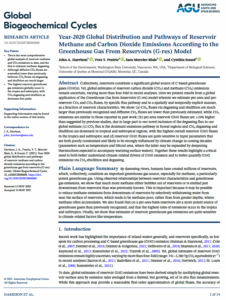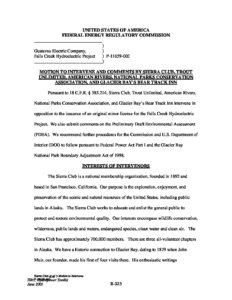Losing through Winning
Shortly after Congressman Blumenauer (D-OR) made public his support for the Columbia Basin Initiative, Senators Cantwell (D-WA) and Murray (D-WA), under the pretense of calls for regional collaboration on long-term solutions, both signaled their opposition to Congressman Simpson’s (R-ID) proposal to recover salmon and steelhead to the Snake River Basin of Idaho while investing in infrastructure in the Pacific Northwest. While this is the same stale rhetoric that has pushed salmon near the brink of extinction in Idaho, it is not the only status quo for this issue.
In January of this year, ten groups, including Idaho Rivers United, filed their eighth supplemental complaint in the 20-year lawsuit, National Wildlife Federation et al. v. National Marine Fisheries Service et al. [01-640] in U.S. District Court in Oregon. In the past six decisions, the conservation community has prevailed, and the federal Biological Opinions have been ruled inadequate and illegal. Under the strength of the Endangered Species Act, this current iteration should be no different. What is different is the dire situation we find ourselves in, standing on the precipice of losing these economically and ecologically vital fish.
When Congressman Simpson put forth his proposal, it was derived from hundreds of diverse stakeholder meetings over the past three years. It remains the most concerted effort to restore salmon and steelhead to Idaho, evolved through the process of regional, diverse collaboration.
Idaho Rivers United is resolute in our commitment to ensure that salmon and steelhead recover to abundance in the Snake River ecosystem, and have a mission focused on protecting this resource, whether through the preferred framework of collaboration set forth by Congressman Simpson, or the judicial system, wherein the only winner is the salmon. Yet, even through winning, we fall short in our mission to protect Idaho’s rivers and fisheries. Beyond the restoration of a free-flowing, restored Snake River, the infrastructure package in the proposal will have long-term positive benefits for river health.
In winning through litigation, we forfeit the potential 3,300 MW of green energy to replace the 963 MW of energy actually produced by the Lower Snake River Dams, a net loss of nearly 2,400 MW. We lose the Snake River Center for Advanced Energy Storage, which has the potential to generate breakthroughs in battery storage technology, creating greater grid resiliency without bringing new projects online, and allowing for the retirement of less effective and environmentally harmful projects. We lose the National Recreation Area designation, promoting tourism to the region and protecting culturally significant resources. It also necessitates we forfeit millions more earmarked for ecosystem and species restoration.
It is our uncompromising mission to ensure that salmon and steelhead do not go extinct. The science, empirically and unequivocally, shows us that the required path to recovery of Idaho’s salmon and steelhead is through restoring the Snake River to a free-flowing, natural river. We will go to court to ensure that our fish are not relegated to a history book, but let me be clear, we would rather be working together with the Tribes, farmers, and regional representatives on the proposal from Congressman Simpson that benefits each stakeholder group. A path forward that benefits every Idahoan has been offered, and it is our hope that we can move forward within this framework to achieve long-term salmon recovery and regional prosperity.
-Nic Nelson, Executive Director, Idaho Rivers United


